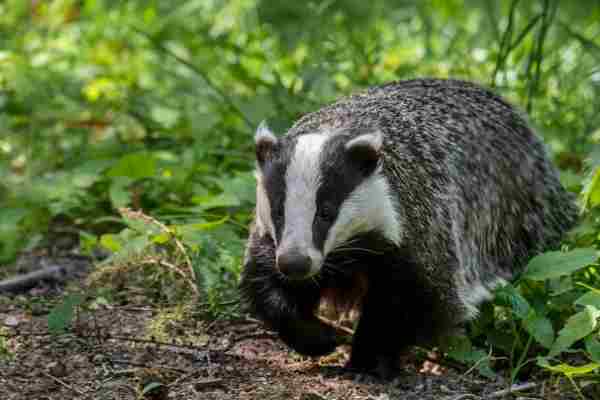According to the Tennessee Wildlife Resources Agency, badgers are found throughout the state of Tennessee. Badgers are short-legged omnivores in the family Mustelidae, which also includes otters, polecats, weasels and wolverines. Badgers have elongated bodies with short legs and can grow up to two feet long. They are heavily built animals with thick fur that is greyish-brown in colour with pale markings on the head and shoulders.
The badger’s most distinctive feature is its long, white-tipped tail. Badgers are found in North America, Europe, Asia and Africa. Badgers in Tennessee live in woodlands, forests, grasslands and fields. They are nocturnal animals that build their homes in burrows underground. Stay tuned to this article to know more about the facinating badgers in tennessee.
Table of Contents

Badgers are solitary animals that only come together to mate. They are known to be fierce fighters and will fiercely defend their homes from predators such as coyotes, foxes and bears. Unfortunately, they are also hunted for their fur and meat. Because of hunting and habitat loss, badgers are considered to be a species at risk of extinction.
Diet:
Badgers are omnivorous animals, which means that they will eat both plants and other animals as part of their diet. In Tennessee, badgers have been known to eat a variety of foods, including fruits, vegetables, small mammals, and insects.
In terms of fruits and vegetables, badgers have been known to eat apples, berries, sweet potatoes, and corn. As for small mammals, badgers will typically eat rabbits, mice, and voles.
Finally, in terms of insects, badgers have been known to eat grubs, worms, and beetles. While the exact composition of a badger’s diet will vary depending on the time of year and the availability of food sources, these are some of the most common items that badgers will consume in Tennessee.
Habitat:
The badger is a burrowing animal, and its habitat typically consists of areas with loose, sandy soil. In Tennessee, badgers can be found in areas such as prairies, open woodlands, and agricultural fields. Badgers prefer to live in isolated areas where they are unlikely to come into contact with humans. Because of this, badgers are not often seen in urban areas or around human dwellings.

Lifespan:
The lifespan of a badger in Tennessee can vary depending on the species. The American badger, for example, has an average lifespan of around 6 years in the wild. However, some individuals have been known to live for up to 10 years. The European badger, on the other hand, has a lifespan of around 12 years in the wild. In captivity, both species can live for much longer – up to 20 years or more.
Size & Weight:
In Tennessee, badgers typically weigh between 10 and 15 pounds. They are about 2 feet long, with a tail that measures 6 to 12 inches.
Predators:
Badgers have a number of natural predators, including coyotes, foxes, wolves, and mountain lions. However, humans are their most significant predators. In Tennessee, badgers are hunted for their fur. They are also killed by vehicles on roads and highways. Because of these threats, badger populations in Tennessee are believed to be declining.

Final Words:
In conclusion, badger animals are a vital part of the Tennessee ecosystem. They help to control populations of smaller animals, and their droppings provide nutrients that help to fertilize the soil. Although they can be a nuisance at times, they play an important role in maintaining the balance of nature.
References:
https://www.tn.gov/twra/wildlife/mammals.html
https://www.crossville-chronicle.com/news/glade_sun/enjoying-nature-fishers-have-returned-have-you-seen-one/article_c3e1bf4a-c4ca-11e7-a6c6-e7f88de43b74.html
https://www.knoxnews.com/story/news/2018/09/19/tennessee-habitats-alligators-armadillos-fire-ants-manatees-cougars-do-they-live-tennessee/1358307002/

Zahra Makda
Growing up enjoying the beauty of my village, a good passion for nature developed in me from childhood. Following my passion for the natural world, I have chosen zoology for my graduation, during my undergraduate degree, I participated in many nature trails, bird watching, rescues, training for wildlife conservation, workshop, and seminars on biodiversity. I have a keen interest in invertebrate biology, herpetology, and ornithology. Primary interests include studies on taxonomy, ecology, habitat and behavior.









